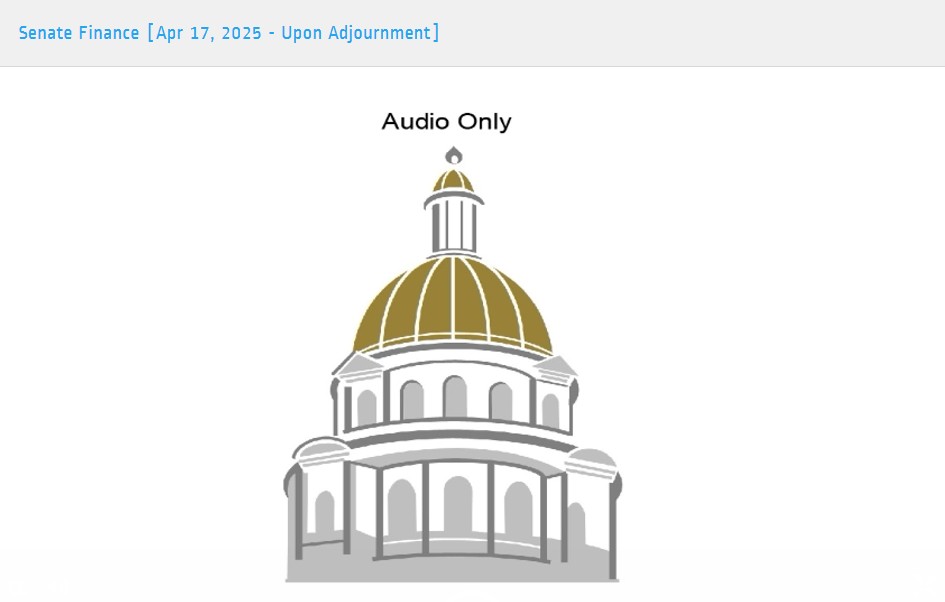By Jeffrey A. Roberts
CFOIC Executive Director
Legislative leaders Monday again discussed providing video coverage of Colorado General Assembly committee meetings, possibly starting with a pilot program.
The Executive Committee of Legislative Council still did not vote on a staff proposal to enable video on the current Sliq MediaTechnologies system that now provides audio streaming of committee meetings, but House Speaker Julie McCluskie reiterated her support for the proposal.
“I just want to lay down on the record again my support for moving forward with live streaming in our committees. I think this is a modest and reasonable expense, given the input that we heard from our public back in December when we hosted our annual meeting on the open meetings law,” the Dillon Democrat said.
McCluskie added that a pilot program “would be a great first step. We could organize and bring something forward at our meeting in June, if that would be acceptable, with the idea that potentially we would launch something either for year-round committees that may be meeting or consider a pilot program for next legislative session.”
Enabling a video stream with a static view of the main dais in each committee room, using already-installed cameras, would cost $70,000 in the first year, which includes a $20,000 one-time setup fee and a $50,000 annual fee, according to an April 11 Legislative Council memo.

“Enabling video streaming through Sliq would not change the user experience, except that the window that currently displays a Capitol Building icon on the audio streaming web page will instead contain streaming video,” the memo says.
Colorado appears to be the only state that does not provide at least some video coverage of legislative committee meetings.
I previously reported that Maine also does not offer video, but that was incorrect. I relied on data about all 50 state legislatures — plus the District of Columbia and U.S. territories — posted in 2022 by the National Conference of State Legislatures. The online chart shows that only Colorado and Maine do not video webcast some or all committee meetings.
I decided to check every state myself after talking with a Maine attendee at Sunshine Fest, a freedom-of-information conference held last month in Washington, D.C. She told me Maine’s legislature does provide video coverage of committee meetings. And indeed, it does.
Starting with NCSL’s great research and then browsing the websites of all state legislatures, I created a spreadsheet of examples. Colorado is the only state where I could not find video webcasts of legislative committee meetings. (The New Jersey and South Dakota legislatures seem to provide only audio of most committee meetings, but there is video of budget and appropriations committee meetings. Wisconsin provides video coverage via a nonprofit that operates like C-SPAN.)
Senate Minority Leader Paul Lundeen, R- Monument, indicated Monday that he still does not support the staff proposal. “Audio is fine. Leave it as is,” Lundeen said. By spending $70,000 to activate video using Sliq, “we get no material change. We get the audio and a static shot of a committee room, and it is nothing but an invitation to spend the two, three, four million dollars to do it right that inevitably will happen.”
“A pilot would be a step in between,” Lundeen added, “but I think if you’re doing to do it, you got to do it, and we need to say we intend to because this is a meaningful policy change — we intend to provide broadcast quality, or close to broadcast quality, representations of the hearing.”
House Minority Leader Rose Pugliese, R-Colorado Springs, said the House Republican caucus “is very much in favor of video and is pushing me very strongly to figure this out, which is why I think a pilot program is a good first step.”
Bart Miller, chair of the Colorado Channel Authority Board that provides video of legislative floor proceedings, is advocating for the video streaming of legislative committee meetings. “We have the technological capability to do it, and it would give the public the best access to their government, to their state government operations,” he told the Colorado Freedom of Information Coalition last September.
Follow the Colorado Freedom of Information Coalition on X or BlueSky. Like CFOIC’s Facebook page. Do you appreciate the information and resources provided by CFOIC? Please consider making a tax-deductible donation.




